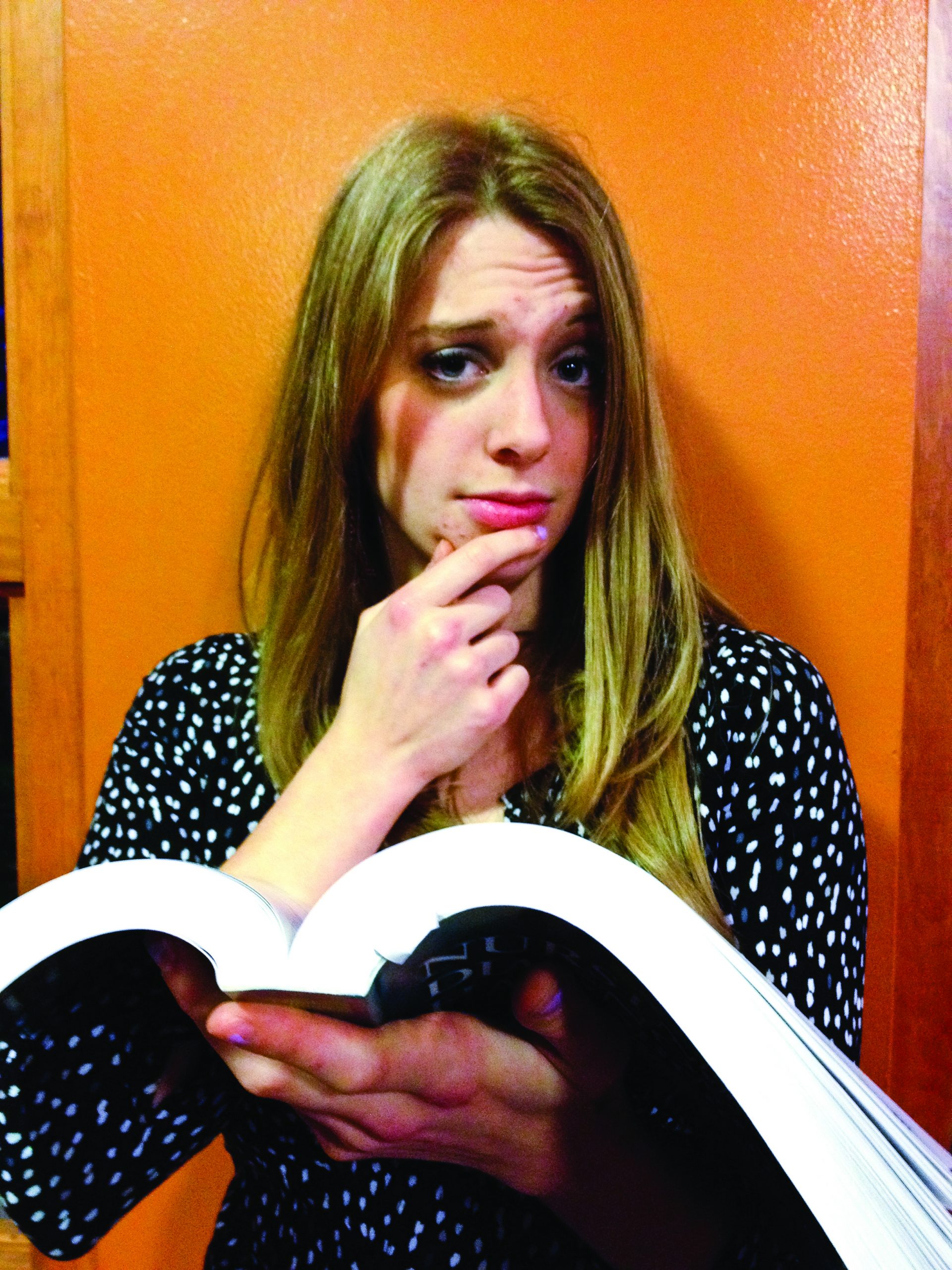I was read to as a child, and often. I learned to treat books as special objects that deserved to be carried close, touched and turned. As a toddler, I would sit on my grandmother’s lap, diaper crinkling against her legs as she read to me. It was the act of putting our hands on the pages. We learned paper cuts together, how to travel everywhere from the comfort of a couch.
Years have passed and the Nook has recently been given a glory spot on some shelves. Yet when I try to imagine the scenes of my childhood with a digital copy, the glow goes out of the picture.We are all readers in the digital age. We are up against dozens of technological distractions, our brains learning new ways to process language and image through screens of color and backlight. I enjoy the benefits of a laptop as much as the next high-wired college student, but while we gain (information, connectedness, the world at the click of a key), we also lose.
As an avid word lover, I am aware of a gradual decline of one of my most prized objects: the physical book.
My kind of book does not light up. It does not power on or ding or fabricate page turns. I think we would all like to believe that we can have both the Kindle and the Paper, a peaceful coexistence, but we are in danger, enamored by an object that may end up replacing or, at the very least, endangering, books in print.
In my estimation, the more Kindles and Nooks in use, the less the real books sell. The less sold, the harder it gets for publishers to make their cuts, which in turn means fewer books being published – in print and Nook. Before we get attached to glowing tablets, let’s think about what we might be doing.
It is better for trees, some might say. There is a portable convenience to the Kindle, formatted to allow its user to bring her entire bookshelf with her, sparing the weight of 200 pounds. You can read anywhere – at the grocery store, in the car, in the dark, at the beach (though let me know how your library likes the sand).
I suppose, like the newest iPhone app, there is a have-it-all mentality that the latest product will make us happier.
But I want paper and ink. Are we so digitally acclimated, accustomed to the five-minute bursts of everythingallatonce, that simplicity isn’t enough? Have we grown so greedy that we can’t enjoy anything without the 6,000 extras?
I just want to read. The beauty of printed word is its ability to take us from ourselves.
In our hyper-connected universe, the book was once a retreat, a haven where the craziness slipped away, where you could lose yourself in a page or a life. Now the book, too, has become another gadget, another cold object electronically wired and impersonally made.
Real books breathe life. They have spines and edges and bodies. They are glued and bound, free to be dog-eared and clutched and marked up and coffee-stained. The most well-loved novels are the ones that bear the weight of life, that exist as their own entity; they carry small pieces of the owner in their pages.
My grandmother has spent her life reading and as her time on earth draws to a close, she has told me she will pass on to me her copy of a book called “The Illuminated Life.” It is nothing we would have read together when I was a child; rather, it is a relic that has helped her through challenging times in her life.
I haven’t seen the book but I am sure it is marked with her love, phrases she underlined, words she wanted to pocket. That book won’t do fancy things but I will have a little part of her, one I can keep long after her battery has worn down.



